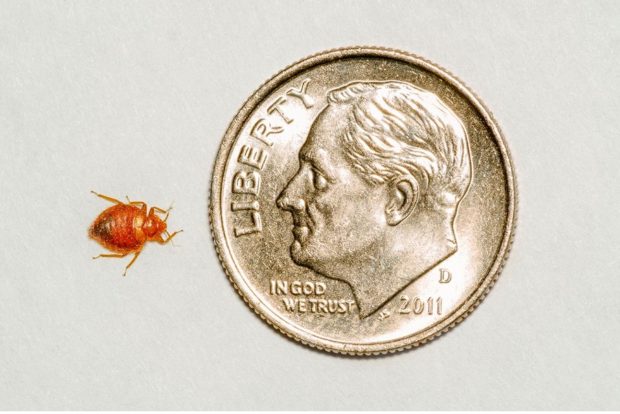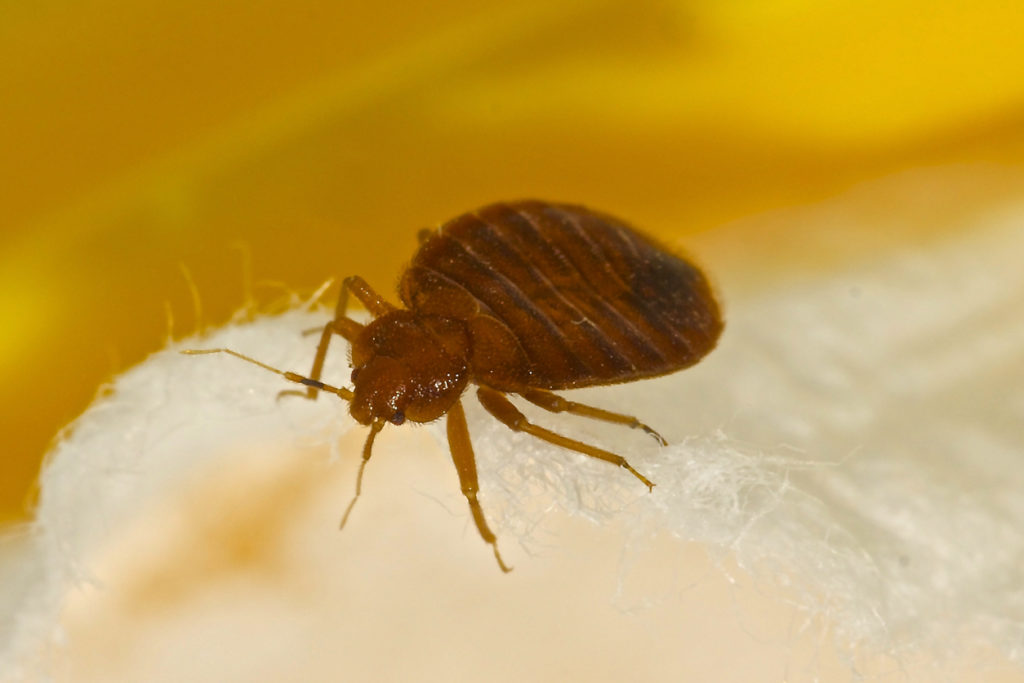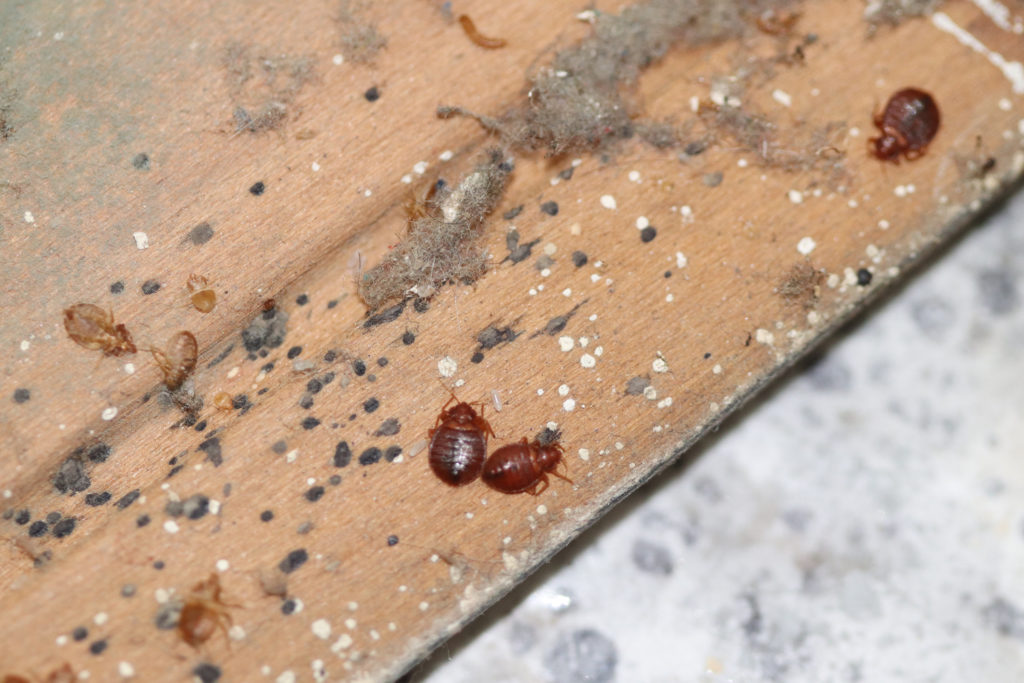Experts explained what needs to be considered in order not to take bed bugs home with you from vacation. Here’s what to look out for in the room you stay in…
In mid-February this year, Michelle Quinn began noticing spots on the left side of her waist. The 53-year-old Northwest Indiana resident thought he might be allergic to his laundry detergent.
Then the itching spots spread to other parts of his body – the one on his left side still hadn’t gone away. This added to the fear and mystery. “It was itchy, but I never in my life thought it was a bed bug.”
Then one night after work – about two weeks later – the thought of bed bugs struck him. She was browsing her photos on Google when a “small, reddish bug” crawled on a piece of paper on her couch. He looked at the insect. Then the screen. Then again.
“I thought, ‘No, that can’t be.’ And so I kind of turned it off and didn’t think about anything until I woke up the next morning and saw one on my arm. Then I took my phone, hooked it up to the camera and zoomed in, and it was definitely a bed bug. And then, of course, the excitement began.
You may also be interested in these articles: A hotel professional explains how to find out if you have bed bugs in your bed
You may have bed bugs in your home! How is a bed bug bite, symptoms, allergy, diagnosis and treatment?
Having a summer full of bad bug news?
“It’s hard to predict, but the scenario of a record surge in hospitality and a shortage of staff in the hospitality industry is alarming for bed bugs,” said Michael F. Potter, professor emeritus in the university’s department of entomology. Kentucky.
Potter, although bed bug infestations occur in all sorts of places, He said hotels and other accommodation is an important branch.
“The staff shortage is worrying because the best way to prevent an increase in infestations in hotels is to remain vigilant. And the best way they can do that is by training them to spot infestations at an early stage and having housekeepers regularly inspect their room.
Potter said the worse the staff shortage, the harder the situation was to deal with.
Is it helpful to ask directly about the bed bug status at a facility when checking in or making a reservation?
“I think the reality is that the front desk person won’t be able to answer that question,” Potter said. “If I was in hospitality, I would really train people to answer that question. But I would say that it is highly unlikely that the guest will get anything from the articles when asked this question.
Tips against bed bugs in the hotel room

The first thing to ask yourself is: how much time and energy are you willing to invest in bed bug prevention?
“Each traveler has to decide for themselves how careful they want to be with bed bugs. “Travel is stressful enough – or it can be – and you’re trying to get away from whatever life throws at you,” Potter said. “So the last thing you want to do … live out of a suitcase, live with ziplock bags, keep your suitcase in the tub, which some people recommend but I find that silly.”
There are less drastic measures you can take.
Potter recommends doing at least a cursory check of the mattress before unpacking it. Pull the sheets and blankets back from the mattress and look for signs of bed bugs or insects on the mattress seams, especially in the head area (more on this below).
Also check the seams of the mattress. This cursory check doesn’t reveal every possible hiding place for a bed bug, but it gives you the best chance of spotting a problem with minimal effort.
One of the most important things to avoid: Don’t put your suitcase in the corner, on the floor. Potter said it was the safest way to bring bed bugs home. Instead, place it on a raised surface, such as a dresser or luggage rack. If a room has two beds, Potter does not put his trunk on the other bed.
Here are some additional tips from the American Hotel and Lodging Association:
• Check the back of the headboard (this is a difficult question to check) and sofas and chairs whenever you can.
• Notify management immediately if you notice any signs of bed bugs. Ask for another room – ideally one that isn’t adjacent to the problem room. If you are not satisfied, go somewhere else if possible.
• If you have seen bed bugs, put a plastic garbage bag or protective cover around your luggage.
These are the symptoms of a bed bug infestation

The US Environmental Protection Agency states that other insects, such as carpet beetles, can easily be mistaken for bed bugs. Therefore, it is good to inform yourself before the inspection. And that probably includes looking at disgusting close-ups.
Generally, Adult bed bugs are about the size of an apple seed (5 to 7 millimeters or 3/16 to 1/4 inch long). They are long and brown with a flat, oval body when not being fed. They are balloon-like, reddish brown, and longer when fed.
see also

Young bed bugs are usually smaller and translucent or whitish-yellow. Nymphs can be nearly invisible to the naked eye unless recently fed. Bug eggs are the size of a pinhead and pearly white.
You may see signs of errors including:
• Rusty or reddish stains (from bruises) on sheets or mattresses.
• Bullet-sized dark dots in this list. These stains are bed bug feces after ingesting blood.
• Extremely small eggs and eggshells.
• Insect exoskeletons are lost when they molt.
• Sweet, musty odor when heavily infested.
Bed bugs are more than a bed and motel problem

Unfortunately, while overnight stays are a common cause, they can accumulate and spread across multiple regions.
For example, the Daniel K. Inouye International Airport in Honolulu, Hawaii, had to close three doors and deep clean areas in late May after bed bugs were found. Three more treatments have been performed, a spokesman for the Hawaii Department of Transportation told CNN Travel.
Schools, libraries, homes, movie theaters, hospitals, office buildings, taxis, buses, trains, dormitories and college student unions can harbor bed bugs, Potter said. He also explained that it’s impractical to control all of this and cautioned against getting paranoid about it.
But if you’ve encountered bed bugs at a hotel or Airbnb, Potter has some advice: “It’s bad enough getting bitten at the hotel, but what you really don’t want to do is take these things home with you. “
He said take everything out of your suitcase and put it in garbage bags. Wash your clothes and then dry them for a long time – the heat of the tumble dryer will kill them.
When it comes to your suitcase, summer heatwaves can be your friend. Open the trunk, put it in your car, park outside and the heat will kill the bed bugs in an hour, Potter said. If your car can’t get to 140 degrees, throw away your bags if you’re worried. It’s a lot cheaper than getting rid of bed bugs in your home.
Medical and health issues

The US Centers for Disease Control and Prevention has good news for you if you’ve been plagued by bed bugs: they don’t spread disease (in the way mosquitoes can carry malaria or ticks can carry Lyme disease).
However, itching from bites can lead to sleep loss and secondary skin infections if you scratch too often and vigorously. And some people can have a severe allergic reaction.
The Cleveland Clinic lays out their typical treatment plan:
• Wash the bites gently with soap and water.
• Apply an anti-itch cream or lotion to your skin (make sure to use 1% hydrocortisone).
• Repeat once or twice a day until itching is gone.